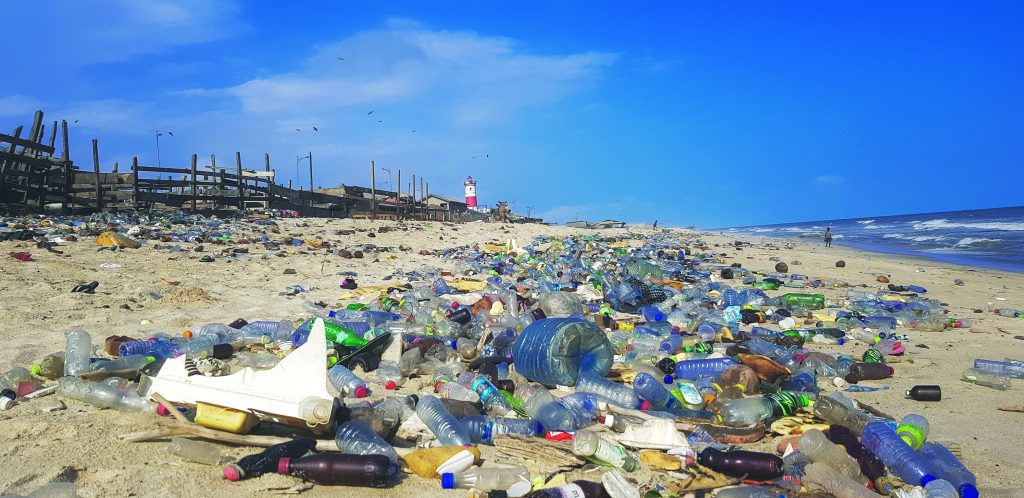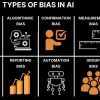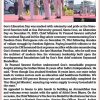Goa is abuzz with excitement as vintage bike and car owners, users, collectors and fans are decking […]

OF EPIDEMICS & HEALTH
June 27- July 03 2020, Life & Living June 26, 2020MEGA PLASTIC MENACE: Human lifestyles and the mega pollution we create is destroying wild-life habitats so rapidly now that we are at the receiving end of epidemics as a result. Although we hardly make the connections or if we make them the will to change is poor!
By Ketaki Ghate
In the age of globalization it is quite difficult to stop the spread of epidemics. However, it is possible to intervene at various stages: So that such viruses do not develop, or do not cause extreme infection or, ultimately, the disease can be controlled. Let’s understand the ecology and evolution of a virus and explore the way forward, which lies in ecological and biodiversity conservation and maintaining immunity.
All living beings in nature have one or more natural predators, or some are ‘apex’ predators themselves. This whole system has evolved in such a way that no one species can dominate the rest or grab all resources. But, by calling ourselves ‘Homo sapiens’ (the scientific name for man referring to humankind as wise because we have cognitive ability), we have declared our supremacy over many apex predators (who have reached that position through a process of natural evolution).
Humankind is the only exception of life on earth who have reached this position solely on the back of technology. And having become a supreme predator we are now using the resources, nature and biodiversity of this earth in all the ways we want! The ‘rate’ and ‘scale’ of consumption of resources has increased multifold during the industrialization of our civilization. Our copious consumption has released toxic substances causing negative implications at local level, for example, river pollution; to the global level like climate change. ‘Development’ is backfiring on us in the form of diseases, social and economic inequalities, crime and psychological problems which are worrisome.
While all of these enormous problems could not make us see the light, the microscopic coronavirus has managed to shake us up in many ways. It pandemic has brought home the realization that we are just like any other animal species and that something beyond our control can control us. Of course, this is not the first time in history that such a situation has arisen, but the current realization has intensified on a global scale. How are we reacting to this warning? What do we learn from it? Do we plan for the future? Can we recognize our responsibility as a superior species in nature? What exactly is our role? Even if we think selfishly about saving our own species, can we take into account the benefits of sustainability and inclusivity?
During the lockdown we all have experienced a change in the environment, especially in cities. It is obvious that this could happen only after a complete shutdown in burning of fossil fuels in cities and industries. Social media was flooded with posts by people who appreciated the changes. Many expressed the possibility and wished that appropriate policies would be adopted in economies for environmental conservation. But very soon all such talk faded as just any trending topic. Nonetheless, many institutes have taken up this issue firmly and are working on it firmly.
While optimistic discussion continue some conflicting news is surfacing. Many nations have loosened or temporarily suspended environmental restrictions or curtailed environmental monitoring. For the sake of health and hygiene disposable ‘use and throw’ items have increased multifold in healthcare. And so has the use of chemicals which leads to the creation of hazardous waste. So clearly on the backdrop of the CoViD19 situation, nature conservation is going for a toss. It is evident from history that if the economy shuts down and unemployment increases, all nations will rush to restart the economy, and the sustainability of natural resources will be sacrificed anew. Our only hope is interference and channelization by common local movements. ‘Collective choice of citizens’ may channelize the economy and market. There is a hope that the situation caused by the coronavirus will deepen society’s consciousness towards nature. Irregular, heavy rains and floods over the last two years, the recent locust attack and cyclone Nisarg, have already sparked a lot of serious contemplation. Hopefully this transforms itself into positive action!
coronavirus
Looking at the emergence and spread of the corona virus, the importance of the conservation of ecology and biodiversity cannot be overemphasized. Let’s understand how. Viruses like the corona are zoonoses i.e. they are transmitted from animals to humans. About 60% of the world’s epidemic diseases come from animals. Of these, 72% come from wild animals. SARS, MERS, Ebola, Nipah, Zika, HIV are all examples of such diseases. The questions that obviously follow are What, When, Where, How and Why — how and why are all these organisms harmful to human health? The answers can be found in the study of ecology and evolution. At the same time, these answers also spotlight the reasons for conserving the environment.
Viruses like coronavirus are more prevalent in certain animals like monkeys, bats, rats, some birds. Some of the individual animals may fall prey to the virus, but on a collective level animal and virus coexist. Such animals are called ‘reservoir’ species, meaning species with natural reserves of the virus. These species and viruses co-evolve and often the virus cannot infect humans directly. It enters a different animal first. This is called `spill over’1. The characteristics of the virus change in this new animal through the process of ‘mutation’, which makes it contagious and harmful to humankind. Mutation is an error in creating new copies of the virus.These errors cannot be corrected, much like a born deformity in human beings. This is a natural process that takes place at the level of genes, so we can’t stop it.
However, it is possible to take care that a spill-over does not occur. Most scientists are linking it to changing ecosystems. Spill-overs are limited in uniform conditions like intact forests or protected ecosystems. But if land use changes, new and different conditions arise. For example, deforestation for mining or animal husbandry, and commercial cultivation alters the existing biodiversity, species numbers and population densities. The new condition creates an opportunity for a virus to spill over and mutate and multiply when they find a new host in the form of a ‘single species with huge number.’
Numbers are important here. The bigger the number of one kind of animal, the faster the virus multiplies and the more scope there is for mutation. According to Darwin’s theory of natural selection, this process contributes to the virus becoming more and more ‘successful.’ Genetics says that this process also leads to the formation of more toxic and contagious phenotypes.
Finally, these infectious strains jump to humans who are also in huge numbers and density, especially in cities. And virus transmission spreads the disease. In short, when we break the integrity of natural ecosystems or replace them with monocultures we create the conditions inviting pandemics upon us.
In light of this making mediators available to potential viruses is like showing the bull a red rag. Deforestation in large-scale industrial animal husbandry is tantamount to inviting all such viruses of into our future. The concern being voiced right now is that people who eat animals are increasing the chances of this spill-over. But it’s not just people who eat animals but all of us! If we use any industrial product, like a smart phone or laptop, we are also indirectly inviting such viruses. This is because most of the materials required to make these electronic devices have to be extracted from mines, such as metals, copper, nickel, silver, cobalt, rare metal compounds like coltan, etc. Most of these raw material mines are in forests. Old forests have to be cleared and habitats have to be destroyed to start mining there. When land use changes, we end up bringing the viruses closer to us.
RETHINK CHOICES
We need to rethink our choices! It is our responsibility to ask questions about what we eat, drink, use and where it all comes from, what effect it has on nature, and so on. There may have been more casualties in epidemics a hundred years ago, but the frequency of the occurrence of such epidemics has increased in the last hundred years. This can easily be linked with our industrialized societies and changing lifestyles. There’s no doubt that many of these things are difficult to reverse. It is almost impossible to stop using smartphones.
It cannot be denied that the livelihoods of many workers depend on industrialization. The recourse available in this situation is the ‘restricted use of resources’ and the ‘revival of natural ecosystems’. This would mean using resources responsibly and restoring areas back to their original glory after extraction has ended.
There is a correlation between ‘changing lifestyle’, ‘increasing urbanization’, ‘declining biodiversity’ and ‘immunity.’2 Urbanization is increasing and so the biodiverse areas are disappearing. Lifestyles are also changing. Both these changes affect the immune system. Both the internal environment and the external environment of the body are important to develop immunity. Changing lifestyles have led to increased hygiene and instant treatment options, which together have caused a weakening of immunity.
The importance of cleanliness is not to be underestimated, but because of this extreme cleanliness and treatments, the environment inside our body is changing. Our immune system has co-evolved with these inner environs for hundreds of years. Changing it over suddenly makes our body vulnerable to diseases. As long as these bacteria and viruses co-evolve with us in our body, they do not become a nuisance because we support them and they stay in the body as long-term friends without killing us. This is what scientists call the ‘old friend’s hypothesis’3. But if we change the environment of our body, there is no doubt that they will react differently. If the external environment (our surrounding) changes, it affects our health.
There is a lot of research that shows that allergies (cold, asthma, skin diseases, etc) increase if there is no biodiversity around. This is the ‘biodiversity hypothesis.’4 The story of Poland5 is a good case in point here. Poland became a member of the European Union in 2004 and its agricultural policies changed. Some researchers studied the prevalence of asthma and other allergies in citizens between 2003 and 2012. These were found to have increased by 8 to 18 per cent. The main reasons for this are isolation from agriculture, declining contact with cows and other animals, and a consequent weakening of the immune system and aggravation of diseases. Although viral infections and allergies are two separate illnesses, immunity plays a crucial role in both. And hence, it is important to have biodiversity around the house to maintain immunity. Moreover, this case study also emphasizes the role of government or political policies.
IMMUNE SYSTEM
We also must note that there are many people with good immune systems who become asymptomatic carriers for CoViD19. This means that the virus is entering their body, but they are not falling prey to the disease. Such people are a key factor in the development of herd immunity, along with the evolution of the virus. Even though immunity is genetic, it can be enhanced by a few practices. Society needs to focus on this. There is a diversity of cultures in India which is shaped due to differences in ecology and local climate. Every culture has its own set of literature or unwritten code of conduct to live a healthy lifestyle. This includes guidelines for diet, nutrition, simple home remedies to keep us fit in changing seasons. Certain rules are in place. These assure prevention of diseases rather than cure. But all this diversity is being homogenized due to rapid globalization. Mainly our food! As industrialization increased, crops changed, traditional food types changed, and consequently nutrition changed. We are shifting from diverse seasonal food items to fewer items. Changes in our diet along with changes in external environs deteriorate the immunity of the entire society. The current situation created by the coronavirus has emphasized the importance of health and nutrition. It is important to venerate the traditional lifestyle and remedies. By combining traditional and modern practices, we can keep our body prepared for such future epidemics!
It seems man is the only species inviting various crises for himself. Due to our increasing aspirations and uncontrolled consumption,we are changing the face of the environment and resources, on which we are completely dependent! This includes the gamut of problems from local pollution to global climate change to the emergence of infectious viruses. But it is possible to prevent extreme damage with the help of environmental conservation and responsible behavior. Only time will tell if this possibility will ever become a reality. Hopefully, we will behave and prove the appropriateness of our scientific name – ‘sapiens sapiens’. Amen.
(Ketaki Ghate is an ecology expert and has been working in the field of ecological restoration, biodiversity conservation and nature education for the last 18 years.)















